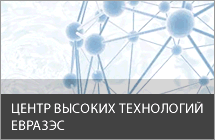
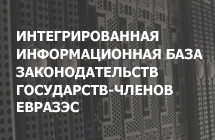
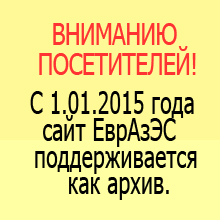
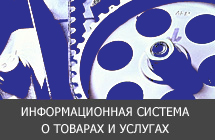
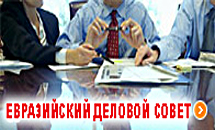
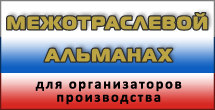

Календарь новостей
|
MEMORANDUM OF UNDERSTANDING MEMORANDUM OF UNDERSTANDING between the Secretariat of the Eurasian Economic Community Integration Committee (EurAsEC) and the Secretariat of the United Nations Educational, Scientific and Cultural Organization (UNESCO) MEMORANDUM OF UNDERSTANDING between the Secretariat of the Eurasian Economic Community Integration Committee (EurAsEC) and the Secretariat of the United Nations Educational, Scientific and Cultural Organization (UNESCO)
The Secretariat of the Eurasian Economic Community Integration Committee, hereafter referred to as the Secretariat of EurAsEC, and the Secretariat of the United Nations Educational, Scientific and Cultural Organization, hereafter referred to as the Secretariat of UNESCO, Taking into account resolution 58/84 of 9 December 2003 of the United Nations General Assembly on granting observer status to EurAsEC and resolution 62/79 of 6 December 2007 as well as resolution 63/15 of 3 November 2008 of the United Nations General Assembly on cooperation between the United Nations and EurAsEC, Considering that EurAsEC is composed of countries with economies in transition and in this regard referring to United Nations General Assembly resolution 61/210 of 20 December 2006 inviting the United Nations system to intensify the dialogue and cooperation with regional and subregional organizations that are composed of countries with economies in transition and whose efforts include assisting its members to provide their full integration into the world economy, Noting that the Treaty establishing EurAsEC of 10 October 2000 confirms the commitment of EurAsEC to the principles of the United Nations Charter, as well as to the generally accepted principles and norms of international law, Bearing in mind that the 62nd session of the United Nations General Assembly recommended the specialized agencies and other organizations, programmes, funds of the United Nations system and international financial institutions to cooperate and develop direct contacts with EurAsEC for joint realization of programmes aimed to the achievement of their goals, Underlying the importance of strengthening relations and the development of cooperation between the Secretariat of EurAsEC and the Secretariat of UNESCO, accepting this Memorandum as a basis for achieving tangible results in implementation of joint activities in the interests of the Secretariats, Reached an understanding in the following: The Secretariat of EurAsEC and the Secretariat of UNESCO (hereafter, parties) shall cooperate within the framework of their respective mandates and authorities in the implementation of specific activities in the development of education, science and culture, information and communication technologies, as well as in the improvement of iijrteracifen between the parties in areas of mutual interest.
I. Areas of cooperation
The parties shall cooperate and contribute to strengthening and expanding the existing potential in the following areas: 1.1. Education: Attaining quality education for all and lifelong learning opportunities: Providing support and social mobilization in favour of the Education for All programme; Promoting initiatives and activities in the context of the United Nations Decade on Education for Sustainable Development and Literacy; Strengthening participation and involvement of the civil society in the implementation of education policies and programmes; Developing capacities for quality education and lifelong learning through policy dialogue, promotion of best practices and innovations within formal and non-formal education; Promoting equal access to education. 1. 2. Natural sciences: Promoting the integration of sustainable development principles in national strategies of development; Improving awareness of climate change; Contributing to conflict prevention by improved cross-border water management cooperation; Assisting in exploring initiatives in the field of biotechnology and nanotechnology, the elaboration of the best practices and innovations in these directions. 1.3. Social and human sciences: Reflecting on joint measures to combat poverty; Building an intellectual cooperation through promoting quality research and policy development, especially in the area of research policy linkages; Coordinating efforts to combat racism, discrimination, xenophobia and related intolerance; Promoting youth empowerment and participation; Working to address emerging ethical challenges in an era of globalization; Promoting harmonization of regional migration policy; Working to address fundamental rights of citizens, including right to education, culture, technology, and rights of disadvantaged or marginalized groups {for example, poor, children, migrants/refugees). 1.4. Culture: Promoting cultural diversity and fruitful intercultural dialogue, including its interreligious component; Securing the international recognition of copyright laws; Promoting the ratification and implementation of UNESCO normative instruments in the field of culture, notably promoting and implementing policies and measures aimed at the protection and safeguarding of both tangible and intangible cultural heritage, in the spirit of the 1972 and 2003 UNESCO Conventions; Elaborating common policies and approaches for the safeguarding of intangible heritage. 1.5 Communication and information: Promoting universal access to information and the use of information and communication technologies in education, science and culture to enhance the premises of knowledge societies; Improving access to information and knowledge; Improving information technology in education, science and culture and creating a society of knowledge; Introducing information and communication technologies in scientific education” and culture; Promoting pluralistic and independent media and especially enhancing the role of public service broadcasting (PSB) in the region by strengthening professional ethics and editorial independence; Promoting information exchange in the field of development of journalism curricula at universities.
II. Forms of cooperation
2. 1. The parties shall use the following forms of joint activity: Development and realization of joint projects and programmes; Organization of activities such as conferences, round tables, meetings, seminars, presentations, etc.; Joint analytical, conceptual reports and other documents; Exchange in documents and materials; Participation in activities organized by the parties; Coordinated involvement of other potential partners, as well as joint search of additional funding sources for the development and implementation of joint projects and programmes; Other forms of cooperation in accordance with the needs. 2.2. Any joint activities in the framework of this Memorandum shall be implemented on the basis of separate agreements between the parties.
III. Periodic consultations
The parties shall hold periodic consultations at least once a year for the analysis of joint activities, progress evaluation and the discussion of future areas of cooperation.
Signed in
Secretary General of EurAsEC Tair Mansurov Director General of UNESCO Koїchiro Matsuura
|
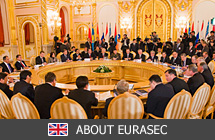
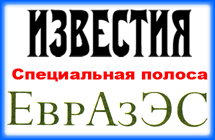
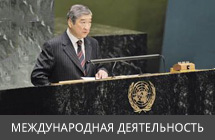
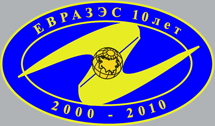
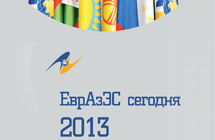
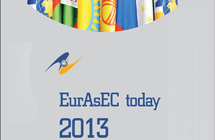
Поиск 10.10.2014 Заседание Межгосударственного совета ЕврАзЭС07.10.2014 Мультимедийная пресс-конференция в агентстве «Россия сегодня»03.10.2014 Встреча с Послом Финляндской Республики04.08.2014 Встреча Генерального секретаря ЕврАзЭС с Послом Республики Таджикистан20.06.2014 Премии Петербургского международного юридического форума «За вклад в развитие правовой интеграции на евразийском пространстве»28.05.2014 Договор о Евразийском экономическом союзе – важнейшее событие в новейшей истории наших стран25.05.2014 Презентация книги «Евразийский проект Нурсултана Назарбаева, воплощенный в жизнь. К 20-летию евразийского проекта 1994–2014»24.05.2014 VII АСТАНИНСКИЙ ЭКОНОМИЧЕСКИЙ ФОРУМ. Панельная сессия «Евразийской экономической интеграции – 20 лет. Итоги и перспективы»24.05.2014 VII Астанинский экономический форум и II Всемирная Антикризисная конференция, 21-23 мая 2014 года, Астана24.05.2014 Петербургский международный экономический форум, 23 – 24 мая 2014 года, Санкт-Петербург |

Евразийское экономическое сообщество
ЕврАзЭС
-
Страны участники
 Беларусь
Беларусь
-
 Казахстан
Казахстан
-
 Кыргызстан
Кыргызстан
-
 Россия
Россия
-
 Таджикистан
Таджикистан
-
 Узбекистан
Узбекистан
-
 Молдова
Молдова
-
 Украина
Украина
